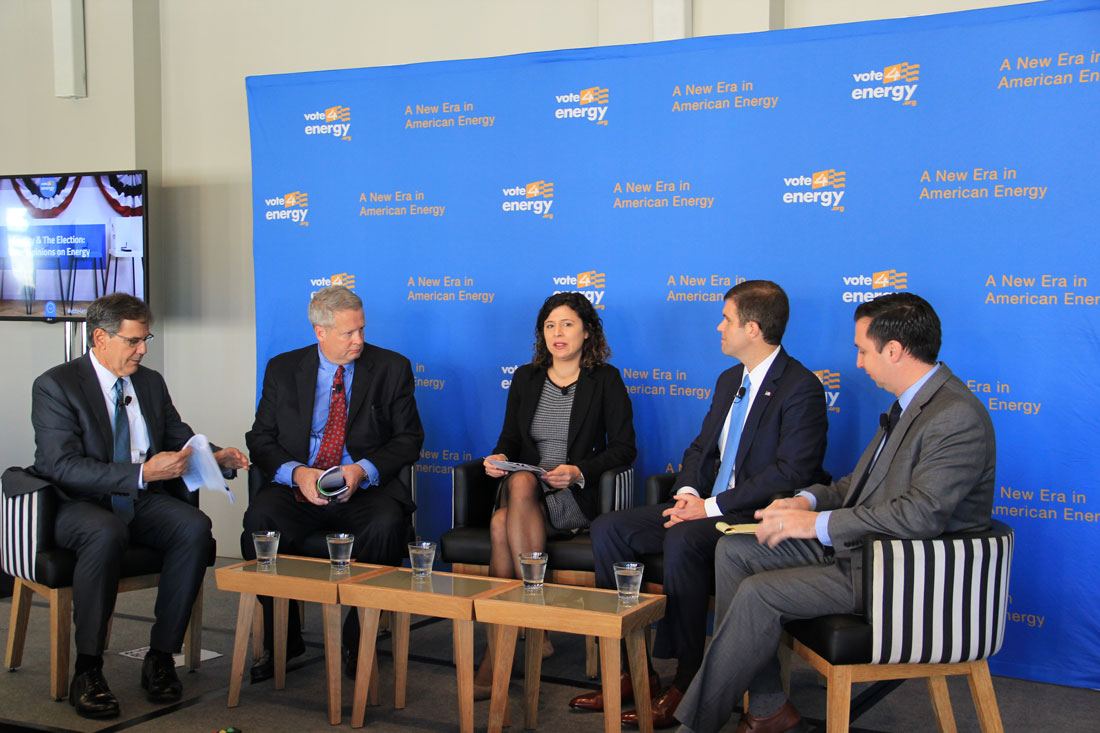Lower prices at the pump and increased domestic production of oil and natural gas have some experts predicting energy may be a secondary issue in the presidential campaign while remaining a factor in key down-ballot races.
In 2016, the energy issue is likely to make more of an impact on congressional and state races than on the national election, speakers at an American Petroleum Institute-hosted panel said Tuesday.
Still, in key states like Ohio and Pennsylvania, energy issues – such as fracking or clean-air regulations on coal – may be very much in play.
Sens. Pat Toomey, R-Pa., Mark Kirk, R-IIl., and Kelly Ayotte, R-N.H., are all facing tough re-election races, said political analyst Nathan Gonzales, editor and publisher of The Rothenberg & Gonzales Political Report.
And while it’s more likely “the news of the day is going to decide the [presidential] election,” energy issues could make or break those senators’ campaigns, Gonzales said.
“Even if energy issues aren’t the top priority for the vast majority of voters, campaigns can identify a smaller group of voters and can persuade them based on that,” he said in a later phone interview.
Meanwhile, in states like West Virginia – once a Democratic stronghold – “there is a sense that the Democrats are waging a war on coal,” said Brookings Institution fellow Philip Wallach.
Wallach believes Republicans, like Toomey in Pennsylvania, may try to “hammer home” the economic benefits of coal and fracking in re-election campaigns.
But history shows that most national elections are won or lost by comfortable margins, Wallach said, meaning an energy issue likely won’t come into play in a big way unless the race gets very close.
Wallach said it will be worth watching how far candidates will go in embracing an all-of-the above approach – a mix of fossil fuels and renewables – when it comes to energy production.
“It’ll be interesting to see if Republicans can come up with a messaging line around all-of-the-above that sounds genuinely inclusive and supportive of renewable technology,” he said.


